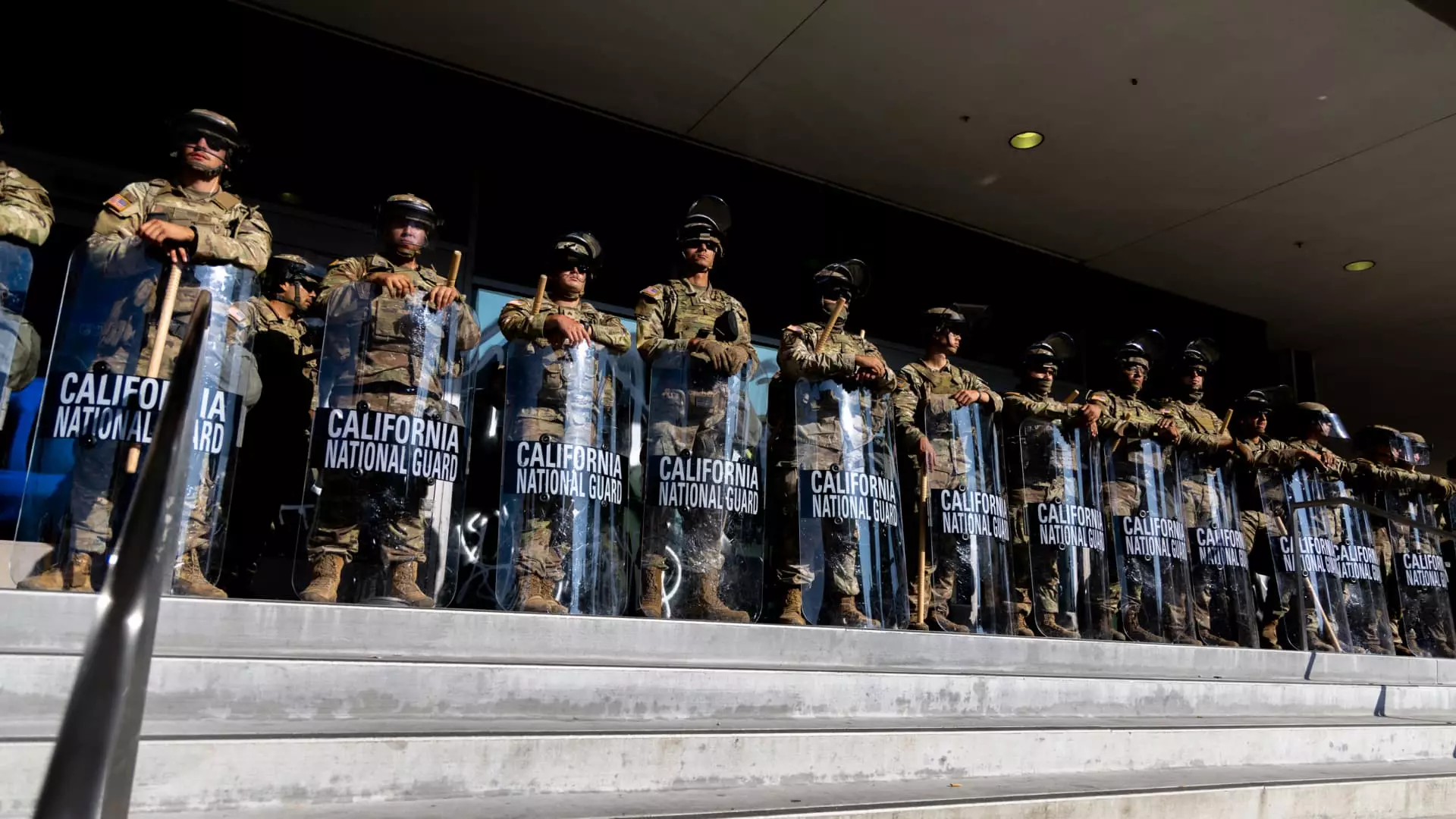In an unprecedented decision that has sent ripples through the political landscape, a three-judge panel from the 9th U.S. Circuit Court of Appeals has decided to permit former President Donald Trump to maintain unilateral control over the National Guard troops he deployed to Los Angeles amidst immigration protests. This ruling underscores a pivotal moment in the ongoing battle between state authority and federal power, igniting an essential debate on the implications of such military intervention.
The matter began when California Governor Gavin Newsom opposed Trump’s activation of the National Guard, describing it as an affront to local governance and a strain on state resources. In the courts, this confrontation was not simply about a trove of soldiers on the streets; it intricately wove through concepts of state sovereignty, the rule of law, and the responsibilities of federal authorities. In essence, Trump’s decision was met with both fierce advocacy for federal safety and stark criticism for its reckless dismissal of local jurisdiction.
The Disturbing Rationale for Military Deployment
The appeals court grounded its ruling in the claim that Trump showed a “defensible rationale” for federalizing the National Guard—specifically pointing to violent confrontations that occurred during protests. The panel noted instances of protestors allegedly assaulting federal officers and vandalizing property. However, the alarm bells should be ringing for anyone concerned about government overreach. This interpretation of “defensibility” can serve as a double-edged sword. If the federal government can justify deploying troops domestically based on a groundswell of unrest—however contentious—what prevents future administrations from exercising this authority capriciously?
While the court cited a “significant” federal interest in “preventing incidents” of violence, the conclusions drawn from a few violent protests risk normalizing the idea that military intervention is a viable solution to civil disturbances. This sets a dangerous precedent: the line between safeguarding public safety and wielding military power domestically becomes infinitely blurred. The likelihood of this trend intensifying under a range of political administrations should give us pause.
The Historical Context That Raises Eyebrows
It’s worth recalling that this marks the first instance of a president deploying a state National Guard without gubernatorial approval since 1965. One would think that such a significant move would require compelling justification under extraordinary circumstances. Yet, the appeal’s ruling suggests a permissiveness regarding the president’s military discretion that should make any democracy-conscious citizen uneasy. The Founding Fathers envisioned a system of checks and balances precisely to prevent the consolidation of power in any one branch of government—especially the executive.
Moreover, there lies an inherent hypocrisy when juxtaposing Trump’s claim of federal authority against the realities of local governance. His administration has taken repeated stances vilifying states led by Democratic governors, labeling their leadership as ineffective. When it suits its agenda, however, the administration flaunts a readiness to utilize the National Guard, disrupting state authority and establishing a concerning precedent of federal dominance.
The Political Theatre and Its Unsettling Implications
With Trump having appointed two judges on the appeals panel, skepticism concerning the impartiality of the ruling is both reasonable and prudent. This development invites critical scrutiny of how judicial systems can become arenas for political theatrics rather than impartial adjudications of law. Trump has continually positioned himself as a defender of law and order—yet what does this ruling say about his broader vision of governance? One can argue that rather than uniting the nation, such decisions are deepening divides, churning distrust among states with differing political allegiances.
In the midst of this complex political tug-of-war, Newsom’s initial victory highlighted the crucial importance of upholding state rights. For the sake of democracy, it is vital to question this path of federal encroachment on local governance. Calibrating the balance between maintaining order and respecting the rights and autonomy of states is not merely a legal necessity; it is fundamental to preserving the very essence of the nation.
The Los Angeles events, although fraught with unrest, provided an opportunity for healing and dialogue rather than military force. By opting for heavy-handed intervention instead of collaborative governance, we are left grappling with the larger question: at what cost do we secure “order”? The answer may well determine the trajectory of the republic itself.


Leave a Reply